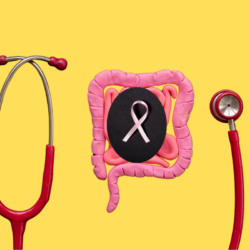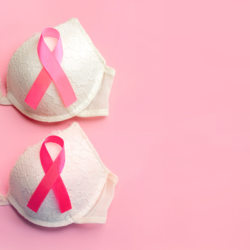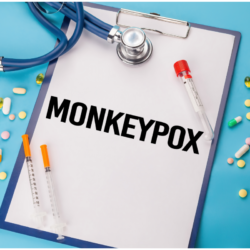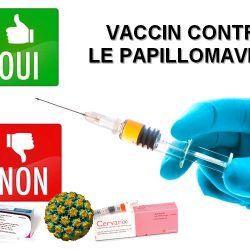Breast cancer is one of the most common and deadliest cancers among women worldwide. Recent research has focused on the natural compounds present in our diet, particularly those contained in soya, for their potential in preventing and treating cancer. Soya contains a particular compound, genistein, a polyphenol in the isoflavone family, whose effect on breast cancer cells is attracting increasing attention.
Breast cancer results from the uncontrolled growth of breast cells. There are many strategies for preventing cancer, including suppressing the mutagenic and toxic effects that trigger tumour formation. Recently, the polyphenols present in plants have been studied for their anti-cancer properties, particularly in the control of cell signalling and hormone regulation.
Genistein, found mainly in soya, has shown promising results in inhibiting the progression of breast cancer through various cellular mechanisms.
What is genistein?
Genistein is a natural isoflavone classified as a phytoestrogen, a plant compound with effects similar to human oestrogens. It is structurally close to estradiol, a key female hormone, and interacts with oestrogen receptors. This similarity enables genistein to intervene in hormonal processes, a crucial factor in the development of breast cancer.
Genistein and inhibition of cancer cells
Several studies indicate that genistein inhibits the proliferation of cancer cells by inducing apoptosis (programmed cell death) and blocking cell cycle progression. It also has an anti-angiogenic effect, preventing the formation of new blood vessels necessary for tumour growth.
For example, genistein modulates signalling pathways associated with cell proliferation and survival, such as the PI3K/Akt pathway, while reducing anti-apoptotic proteins and activating pro-apoptotic enzymes.
Induced apoptosis
Apoptosis, or programmed cell death, is an essential process by which the body eliminates damaged or abnormal cells. In cancer, this process is often inhibited, allowing tumour cells to survive and proliferate. Genistein plays a key role in reactivating this mechanism.
It acts primarily by modulating proteins in the Bcl-2 family, a group of regulators that control the permeability of mitochondrial membranes, a crucial element in triggering apoptosis. Genistein increases the expression of pro-apoptotic proteins such as Bax while reducing that of anti-apoptotic proteins such as Bcl-2. This modulation creates an imbalance that promotes the release of cytochrome C into the cytoplasm, triggering the activation of caspases, the key enzymes responsible for orderly cell destruction.
In addition, some studies have shown that genistein can activate apoptotic pathways by increasing the concentration of intracellular calcium, which activates calcium proteases such as calpain and caspase-12, contributing to the death of tumour cells.
Inhibition of cell proliferation
As well as inducing apoptosis, genistein has also shown significant ability to inhibit cell proliferation. This process takes place mainly through interference with the cell cycle. In particular, genistein blocks the progression of the cell cycle in the G2/M phase, a key stage before the cell divides.
This inhibition is mainly due to the down-regulation of cyclin B1 and Cdc25C, two proteins essential for the transition to the mitotic phase. By blocking the activity of these proteins, genistein prevents cancer cells from dividing, forcing them into cell cycle arrest, which results in their inability to reproduce.
Research has also shown that genistein inhibits the activity of tyrosine-dependent kinases, in particular the PI3K/Akt signalling pathway, which is often over-activated in cancer. By reducing the activity of this pathway, genistein disrupts cell survival signals, helping to halt the proliferation of cancer cells.
Anti-angiogenic effect
Tumour growth is largely dependent on angiogenesis, the process by which new blood vessels form to supply the tumour with oxygen and nutrients. One of the most notable effects of genistein is its ability to inhibit angiogenesis, making tumour growth unsustainable.
Genistein acts by reducing the expression of pro-angiogenic factors, such as VEGF (vascular endothelial growth factor) and matrix metalloproteinase-9 (MMP-9), which play a key role in the breakdown of the extracellular matrix, a necessary step in the formation of new vessels. By inhibiting these factors, genistein blocks the creation of new vascular networks around tumours, thereby depriving cancer cells of the blood supply they need to expand and metastasise.
This anti-angiogenic effect of genistein is particularly relevant to breast cancer cells, which are highly dependent on angiogenesis for their propagation. In vitro and in vivo studies have confirmed that genistein can reduce the density of tumour blood vessels and limit the progression of breast tumours, suggesting a potential application in anti-cancer treatments.
Soya consumption and cancer prevention
The consumption of soya and other isoflavone-rich foods is being studied for its role in reducing the risk of breast cancer, particularly in Asian populations where soya consumption is high. However, it is important to note that the effects of genistein are dose-dependent and vary according to numerous factors, such as the concentration of hormone receptors in breast cells.
Studies suggest that early consumption of soy products may have a long-lasting protective effect by increasing mammary cell differentiation and reducing the number of potential carcinogenic cells. However, further research is needed to confirm the extent and limits of these effects in non-Asian populations.
Sources
- Molecular Pathways of Genistein Activity in Breast Cancer Cells
- Genistein: A Potent Anti-Breast Cancer Agent
- The Therapeutic Role of Genistein in Perimenopausal and Postmenopausal Women







